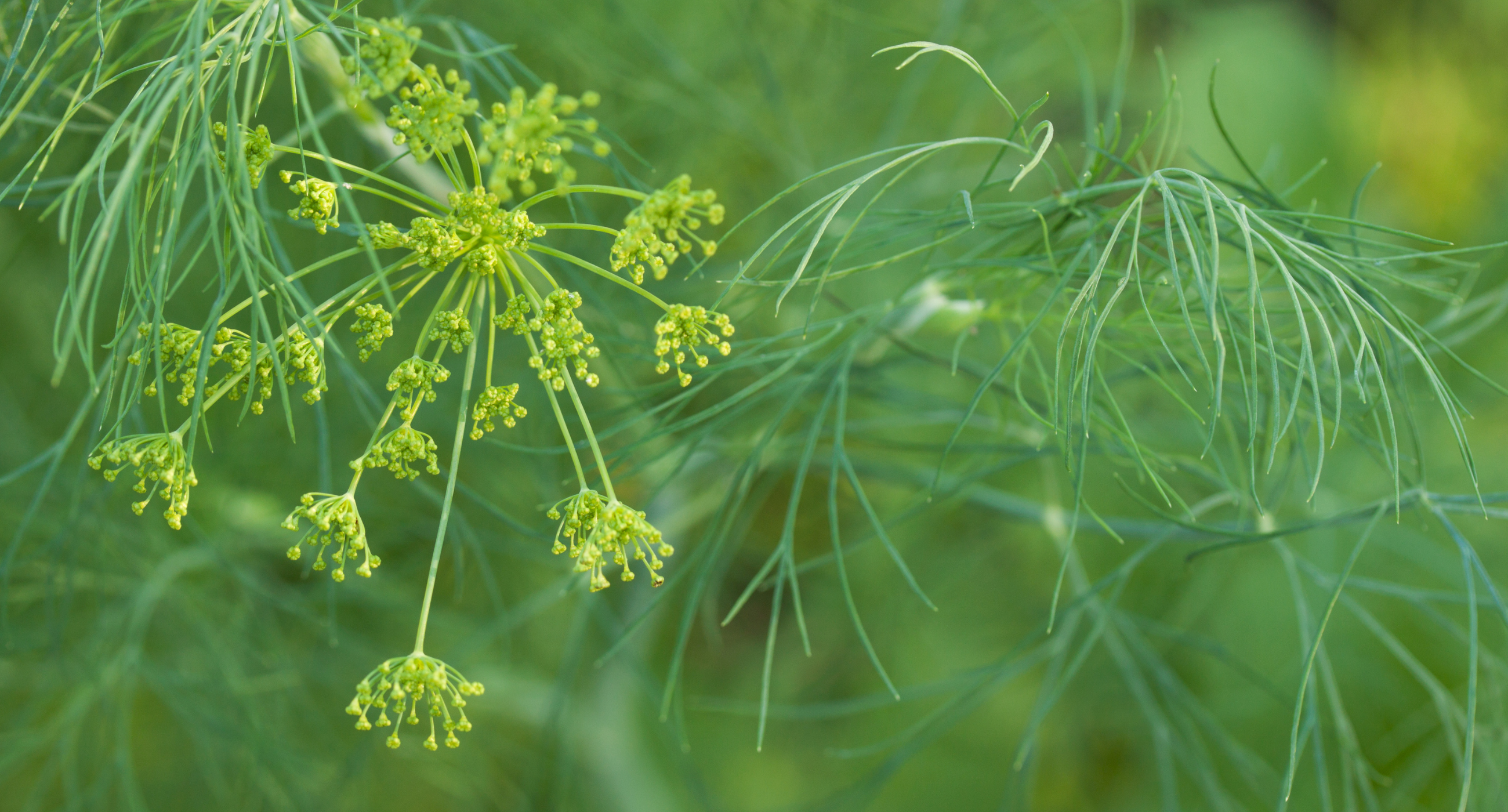
Dill
Scientific Name: Anethum graveolens
Herbal Profile: Dill
Scientific Name: Anethum graveolens
Family: Apiaceae
Common Names: Dill, Dill Weed, Dill Herb
Description:
Dill is an annual herb native to the Mediterranean region and southwestern Asia but is now widely cultivated around the world. It has feathery, blue-green leaves and produces small yellow flowers that grow in umbrella-shaped clusters called umbels. The seeds are flat, oval, and brown, with a slightly bitter flavor. Both the leaves (dill weed) and seeds of dill are used in cooking and herbal medicine for their distinct flavor and various health benefits.
Traditional Uses:
Dill has been used for thousands of years in traditional medicine, particularly in Ayurvedic and ancient Egyptian practices, for its digestive and calming properties. Common traditional uses include:
- Digestive Health: Dill is well-known for its ability to aid digestion. It is often used to relieve digestive discomfort, such as bloating, gas, indigestion, and cramping. Dill stimulates digestive juices and enzymes, promoting better digestion and reducing gastrointestinal distress.
- Antispasmodic Properties: Dill has antispasmodic effects, which can help relax smooth muscles and relieve spasms in the intestines, reducing cramps and promoting overall digestive comfort.
- Flatulence Relief: Dill seeds are traditionally chewed to relieve flatulence and freshen breath. Their carminative properties help expel gas from the digestive tract, reducing bloating and discomfort.
- Sleep Aid and Calming Effects: Dill has mild sedative properties and is often used to promote relaxation and improve sleep. It is believed to help calm the nerves and reduce anxiety and stress.
- Lactation Support: Dill is traditionally used to support lactation in nursing mothers by promoting the production of breast milk. This is thought to be due to its ability to stimulate the secretion of hormones that enhance milk production.
- Antimicrobial and Antioxidant Properties: Dill contains compounds with antimicrobial and antioxidant effects, which can help protect the body from infections and oxidative stress.
Active Compounds:
- Essential Oils: Dill contains essential oils, including carvone, limonene, and dillapiole, which contribute to its digestive, carminative, and antimicrobial properties.
- Flavonoids: Such as quercetin and kaempferol, which provide antioxidant benefits and help reduce inflammation.
- Monoterpenes: Compounds like carvone and limonene that have carminative, antispasmodic, and antimicrobial effects.
- Coumarins: Offer potential anticoagulant effects and contribute to the herb's anti-inflammatory properties.
- Vitamins and Minerals: Dill is a good source of vitamins A and C, as well as calcium, iron, and magnesium, which support overall health.
Preparation and Dosage:
- Tea (Infusion):
- Tincture:
- Powder:
- Essential Oil:
- Culinary Use:
Safety and Precautions:
- Pregnancy and Breastfeeding: Dill is generally considered safe for use during pregnancy and breastfeeding when used in typical culinary amounts. However, medicinal amounts should be used with caution, and it's best to consult a healthcare provider before using dill in larger quantities.
- Allergic Reactions: Individuals allergic to plants in the Apiaceae family (such as carrots, celery, or parsley) may also be allergic to dill. Discontinue use if any allergic symptoms, such as skin rash or respiratory discomfort, occur.
- Medication Interactions: Dill may have mild anticoagulant effects, which could interact with blood-thinning medications. Consult a healthcare provider before use if you are on anticoagulant medications or have a bleeding disorder.
- Photosensitivity: Dill essential oil may increase sensitivity to sunlight when applied to the skin. Avoid sun exposure on treated areas to prevent skin irritation or burns.
Conclusion:
Dill is a versatile herb with a long history of use in traditional medicine for its digestive, antispasmodic, and calming properties. It is particularly effective for relieving digestive discomfort, reducing gas and bloating, and promoting relaxation. Dill is generally considered safe for most people, especially when used in culinary amounts. However, it should be used with caution in medicinal amounts, especially for those with allergies, bleeding disorders, or those taking medications. Always consult with a healthcare professional before starting any new herbal regimen, particularly if you have underlying health conditions or are pregnant or breastfeeding.
